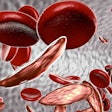
Medicare could have saved up to $216 million if it prevented payments for specific types of drug testing over 5 years, the U.S. Department of Health and Human Services Office of Inspector General (OIG) said Wednesday.
In an audit, OIG sought to identify Medicare Part B payments for definitive drug-testing services that were at risk for noncompliance with Medicare requirements. Part B covers medically necessary services such as those needed to diagnose or treat a medical condition and services to prevent illness or detect it at an early stage.
The testing in question detected the presence or absence of drugs in patients undergoing treatment for pain management or substance-use disorders.
The Centers for Medicare & Medicaid Services (CMS) identified overpayments for so-called definitive drug-testing services with the highest reimbursement amount. The testing providers billed under procedure code G0483, covering definitive drug testing for 22 or more drug classes.
Overall. the OIG audit covered $3 billion in Medicare Part B payments for the definitive drug-testing services from January 2016 through December 2020.
Medicare paid 1,062 providers, deemed at-risk providers that routinely billed procedure code G0483 for 75% or more of their definitive drug-testing services. It also paid 4,227 other providers that did not routinely bill this service.
OIG then compared the characteristics of the at-risk providers and other providers. It found that over the five years, Medicare paid $704.2 million for definitive drug-testing services that were at risk for noncompliance with Medicare requirements. Those tests may not have been reasonable and necessary, OIG added.



















